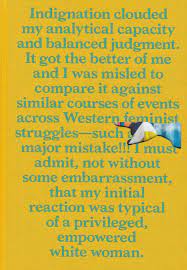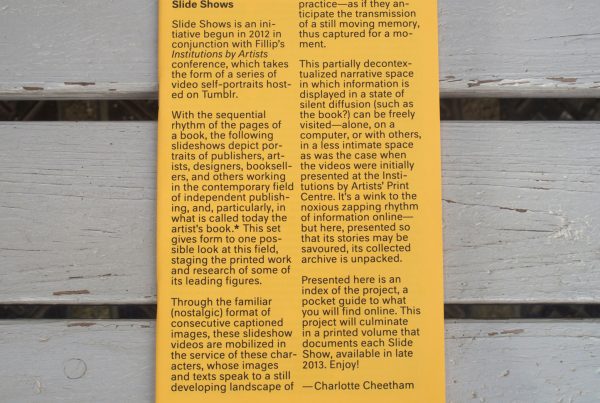
 Woman Go No´Gree
Woman Go No´Gree
Gloria Oyarzabal
Editorial RM
English and Spanish
Hardcover
176 pages
190 x 275 mm
2020
ISBN 9788417975289
During European colonialism gender categories were institutionalized in Yoruba, Igbo and other African cultures as one kind of bio-logic “new tradition”. Can we assume social relations in all societies are organized around biological sexual difference? Beauty canon, modernity, stereotypes… Decolonize feminism questioning the Eurocentric rational theoretical frameworks that construct gender categories in a universalistic manner. Empires, by their very nature, embody and institutionalize difference, both between metropolis and colony and between colonial subjects. Imperial imaginary floods popular culture. Rethink gender as a sociocultural Western construction: postcolonial mapping of the distinctively European approaches to feminism that developed the “woman question” mostly as a Western one and not with a proper lens for viewing African society. This research is inspired by different readings of African feminist literature. One of them is Oyèrónkẹ Oyěwùmí’s “The Invention of Women: Making an African Sense of Western Gender Discourses” where, among other questions, she traces the misapplication of Western, body-oriented concepts of gender through the history of gender discourses in Yoruba studies. Her analysis shows the paradoxical nature of two fundamental assumptions of Western feminist theory: that gender is socially constructed and that the subordination of women is universal. There is significant religious and linguistic evidence that Yoruba society was not gendered in its original form: before colonization social practices (such as division of labour, kinship, profession and monarchical structures) were not ordered according to gender difference but to lineage or age. So, before English colonial years empowerment in Yoruba society wasn’t linked to gender.
Winner of the Aperture PhotoBook of the Year award 2020
If we assume that it is the artist’s duty to open the eyes/mind of the observer and thus raise awareness, then analysis and activism are intrinsic elements: power and responsibility, potential to raise passions, clarify ideological nebulae, correct historical errors, generate debate, provoke new thoughts, values and ethics. The responsibility of those who return home and feed a collective imaginary: when developing a project, my modus operandi follows alerts inputs, a continuous self-questioning that leads me to historical researches. Since my years in Mali, my energies have been focused on understanding the Machiavellian and harmful construction of Africa’s IDEA and its imaginary, the complex processes of colonization/colonization, the current tactics of neo-colonization and, almost as a consequence, the wide spectrum of voices in African feminisms, the effect of colonization and imperialism on the concept of “woman” in other societies and the way gender issues are handled thereafter, to conclude that feminist and gender discourses cannot be universalized. Processes of colonization of the mind: Ngugi wa Thiong’o or Chinua Achebe talk about how European civilization took over the African world and how Western influences such as language, religion and social structures changed African societies, not only geopolitically, but also psychologically, spiritually and mentally.
About the Artist
Graduate in Fine Arts, she diversifies her activit between film, photography and teaching. Co-founder and programmer at the independent cinema “La Enana Marrón” in Madrid (1999-2009), dedicated to the diffusion of author, experimental and alternative cinema.Lived 3 years in Bamako, Mali (2009-2012) researching on the construction of the Idea of Africa, processes of colonization/decolonization , new tactics of colonialism and the diversity around the different voices of the African Feminisms.
gloriaoyarzabal.com
About the Publisher
RM is one of the most prestigious publishers of art books in Latin America, focusing primarily on photography and contemporary art. It also maintains a select catalogue of Latin American literary classics.
editorialrm.com
Further Reading
(Source)



